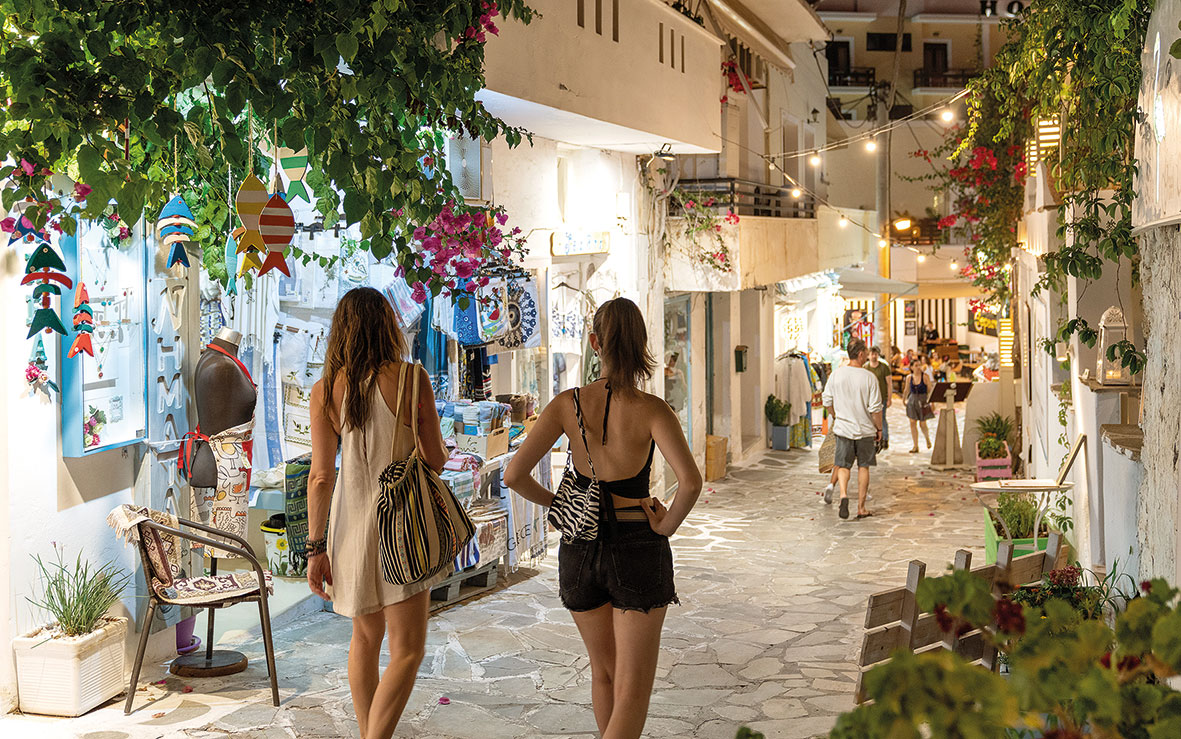In a recent article by the UK newspaper The Sun, Naxos has been described as a “juicy stuffed vine leaf,” encapsulating all “the best bits of all the Greek islands” rolled into one. Less pretentious and eye-wateringly expensive than its more famous neighbors Mykonos and Santorini, under-the-radar Naxos has managed to hold on to its earthy, rustic charm, “refusing to sell out to its excesses,” the article reports.
Boasting some of Greece’s finest sandy beaches, beach bars, nightclubs and luxury resorts, Naxos, the largest of the Cycladic islands, nevertheless maintains a semblance of authenticity, thanks in part to its robust agricultural sector, famous for its cheeses and potatoes.
In short, while other Greek islands have based their economies entirely around tourism in recent decades, Naxos has remained largely self-sufficient, with tourism seen as a less vital, albeit well-developed side-hustle.

© Shutterstock
On an island where the local inhabitants are outnumbered four-to-one by goats, Naxos is the most fertile island of the Cyclades. Blessed with stunning natural beauty, rich cultural heritage, and warm hospitality, it is the perfect destination for families, couples, and solo travelers who are looking for a tranquil island experience.
The article in The Sun characterizes the island as more budget-friendly than its neighbors, with accommodation to suit all tastes and needs. The article also highlights the island’s many secluded beaches, accessible only by off-road vehicles, by foot, or by boat. Family-run tavernas serve delicious, affordable meals, including generous portions of fresh calamari and marides (whitebait) “straight off the boat.”
The island is home to some spectacular archaeological sites, too, including the Portara, the monumental marble doorway of an unfinished ancient temple dedicated to Apollo, and the Temple of Demeter, a well-preserved temple dedicated to the goddess of fertility.
Another famous attraction is the “world’s oldest olive tree,” estimated to be between 5,000 and 6,000 years old.
Guided tours of the island are also relatively affordable, according to the article, taking in cultural sites, scenic mountain villages, distilleries, and historic churches. Naxos “has it ALL — enough to stop even the most seasoned of island-hoppers in their tracks, a one-hop shop.”












